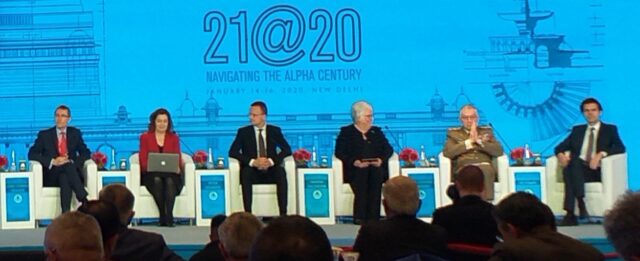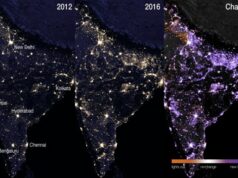NEW DELHI: Europe seems to be at a crossroads today. The US pivot towards Asia has ensured that global geo-politics is slowly but surely being played towards the east of the world.
This trend, exacerbated by growing tensions within the transatlantic alliance, and the fact that the 28-member organisation cannot seem to pull together on crucial issues – be it relations with Russia, China and trade and security concerns – has led to uncertainty about Europe’s future.
Speaking at the Raisina Dialogue on the ‘Future of Europe’, Hungary’s Foreign Minister Peter Szijjarto concurred with the view that the EU had lost a lot of power and leverage over the last few years.
“Major crises have happened over the last few years, but we can hardly name one where the EU has played an important role. The one exception was that of the JCPOA which now sadly looks more and more unlikely to be implemented,” he regretted.
Other speakers concurred arguing that the EU needed to figure what role it saw for itself in the ‘Great-Power’ era. Theresa Fallon, Director, Center for Russia Europe Asia Studies in Ireland said, “Europe has lost its balance and it needs to decide on how it will perform with regard to major crises in the world today. The problem is it has to decide on these crises quickly.
“Trade is a huge issue for Europe,” she pointed out saying that “it has to figure out what does the US-China trade talks meant for them. 5G is another issue with many European countries. On a security level, China’s investment around the region, especially in the ports in the Mediterranean, and its growing interest in the Arctic brings these challenges even closer home to Europe.”
The China question and talks of a possible ‘Reset with Russia’ has raised a huge debate within the continent. Currently Germany and France are in favour of pushing the EU towards the Russian orbit, which many east European and Baltic countries such as Estonia, find uncomfortable. On the question of China, the investments made by Beijing in East Europe, especially Hungary, has meant that the EU has been speaking in different voices so far on the question of Huawei, BRI and 5G.
Hans-Thomas Paulsen, member of the executive board of the Korber-Stiftung foundation in Germany, believed that the different voices were arising because of a lack of strong leadership.
“Germany and France together need to lead Europe, but they are not on the same page. For Germany, the priority is to keep the club together, the French vision is more of a core Europe that works more closely together. So, this paradox continues about Europe and weakens it.”
Apart from differing voices, security continues to be a prime concern for the continent. President Trump’s insistence that the EU pay its share for security in the continent may not have gone down well, but EU members have realised that if Europe wants to put itself back on the world map, strategic autonomy was the key.
As Paulsen pointed out, “Europe has a long way to go to ensure its strategic autonomy in terms of security. After Brexit, 80 per cent of defence spending for NATO is done by non-EU members so we do need to look at that urgently.”
Asked as to what they saw as the continent’s future, most of the panelists agreed that the EU’s future lay with building up relations with countries like India. “Post Brexit, the EU should look for stronger trade relations with India. There is a need to revive talks about an FTA which last ended in 2013,” Fallon said.
Marina Kaljurand, Member of the European Parliament for Estonia, echoed these sentiments adding, “External Affairs Minister Jaishankar had said that India is under-performing. Minister, it takes two to tango. We too have been under-performing from our side and we will do better in the next five years.”
Traveller, bibliophile and wordsmith with a yen for international relations. A journalist and budding author of short fiction, life is a daily struggle to uncover the latest breaking story while attempting to be Hemingway in the self-same time. Focussed especially on Europe and West Asia, discussing Brexit, the Iran crisis and all matters related is a passion that endures to this day. Believes firmly that life without the written word is a life best not lived. That’s me, Ashwin Ahmad.





